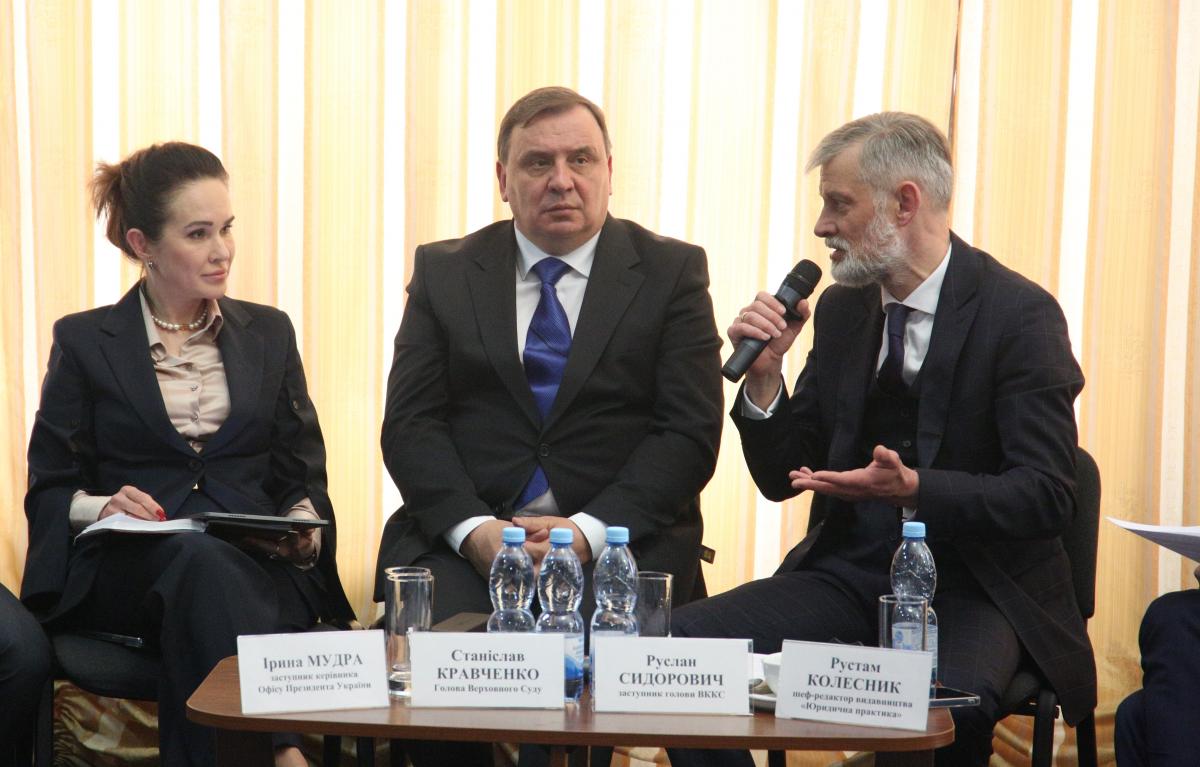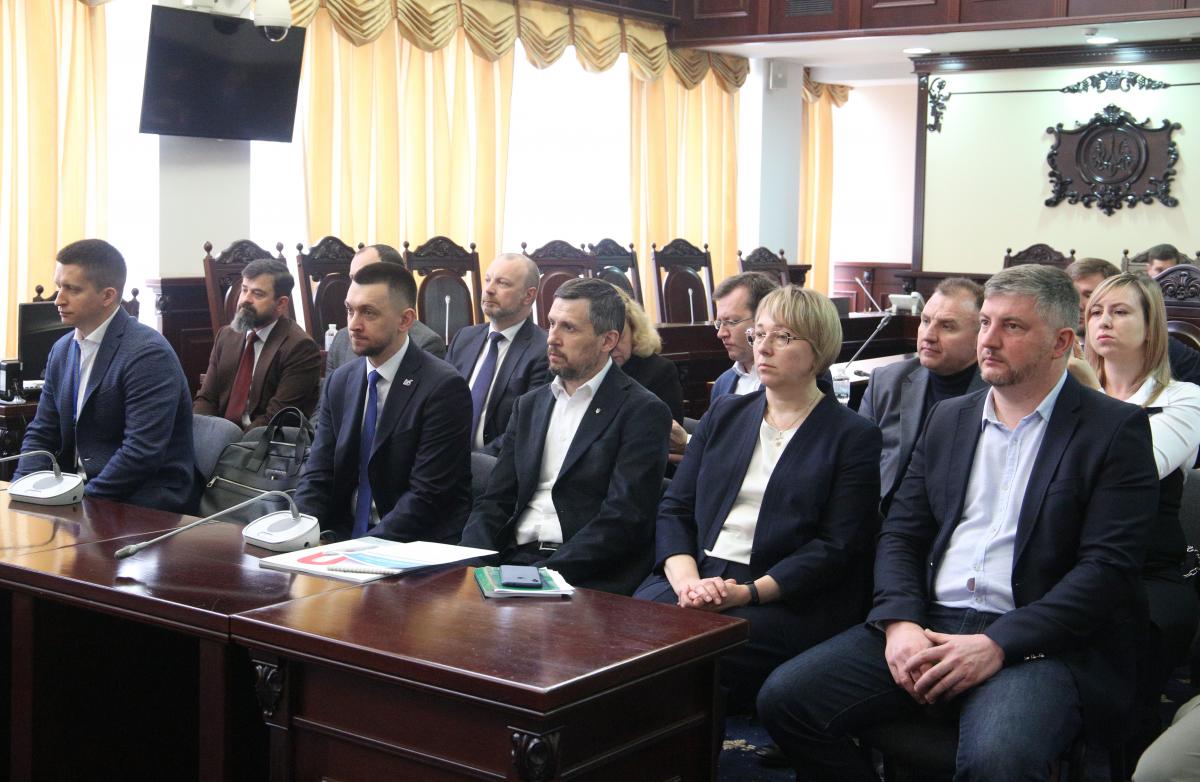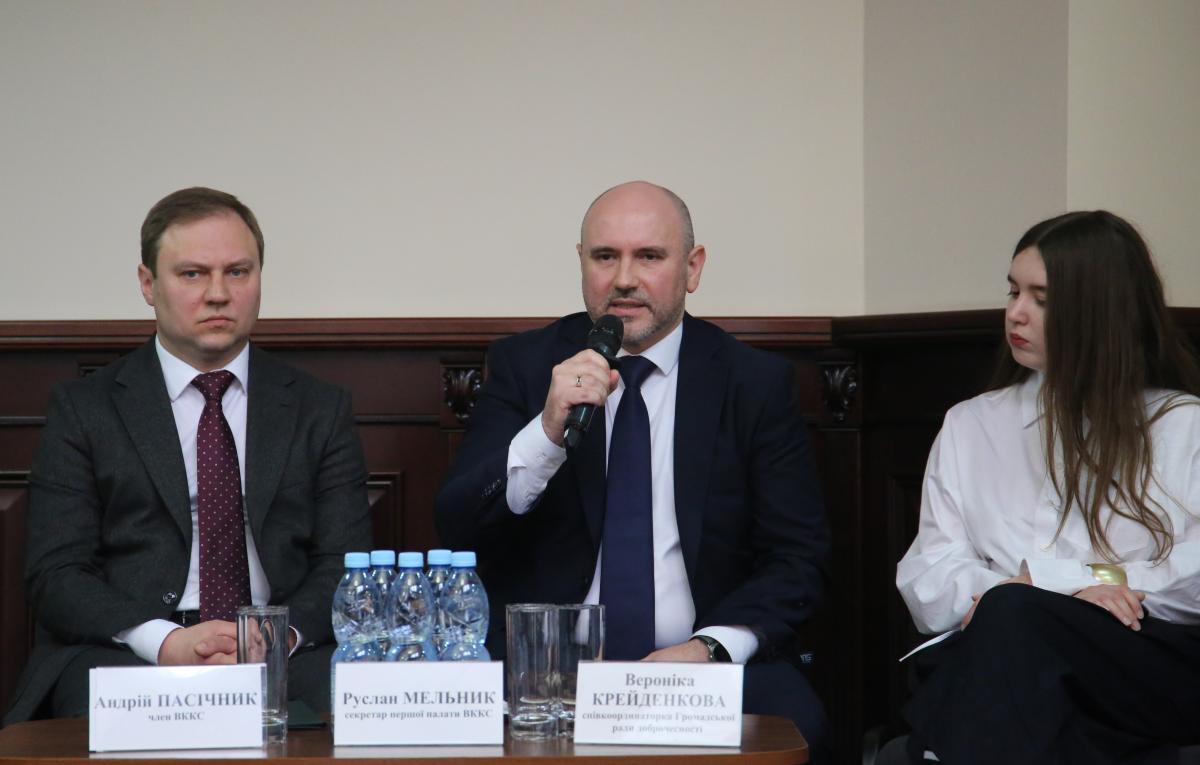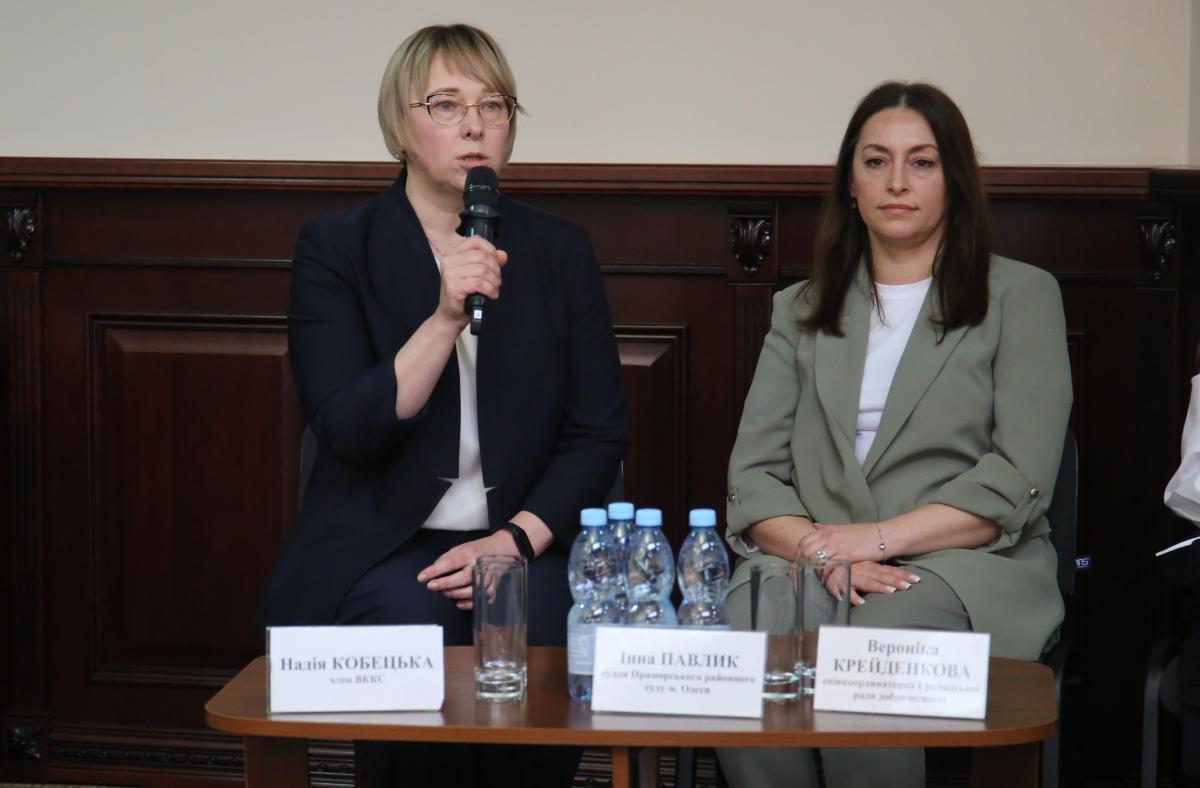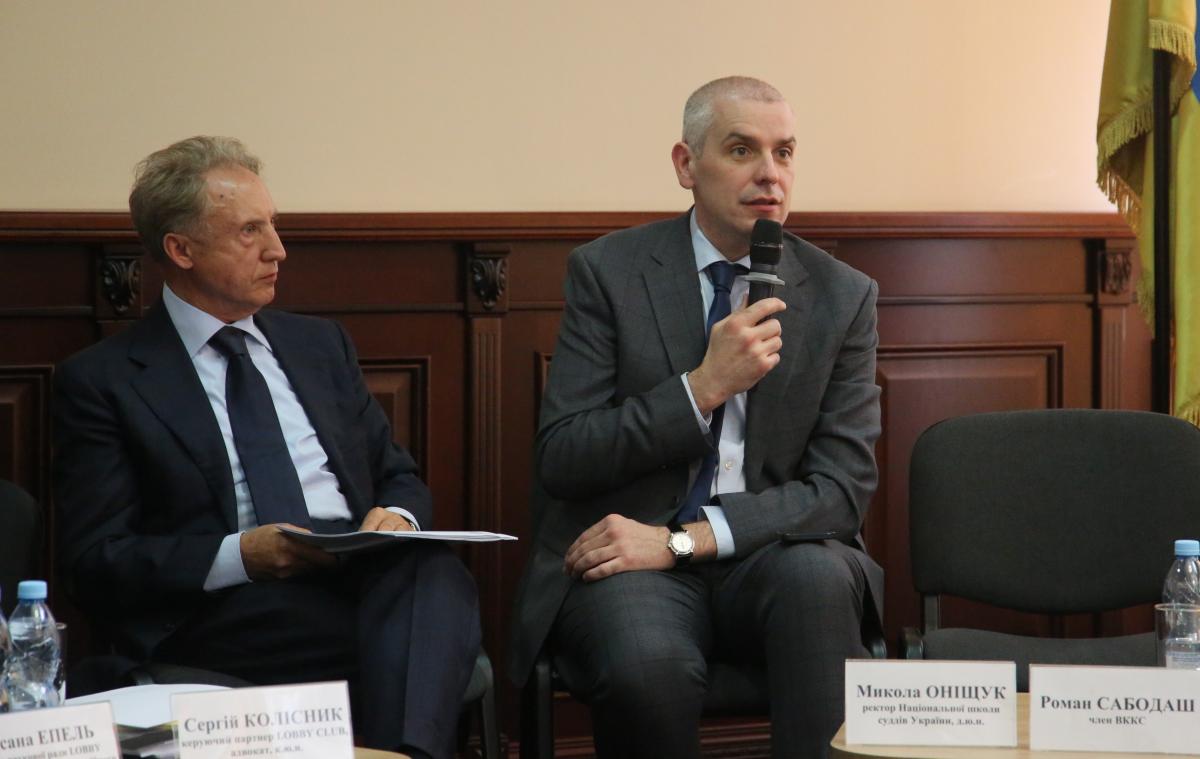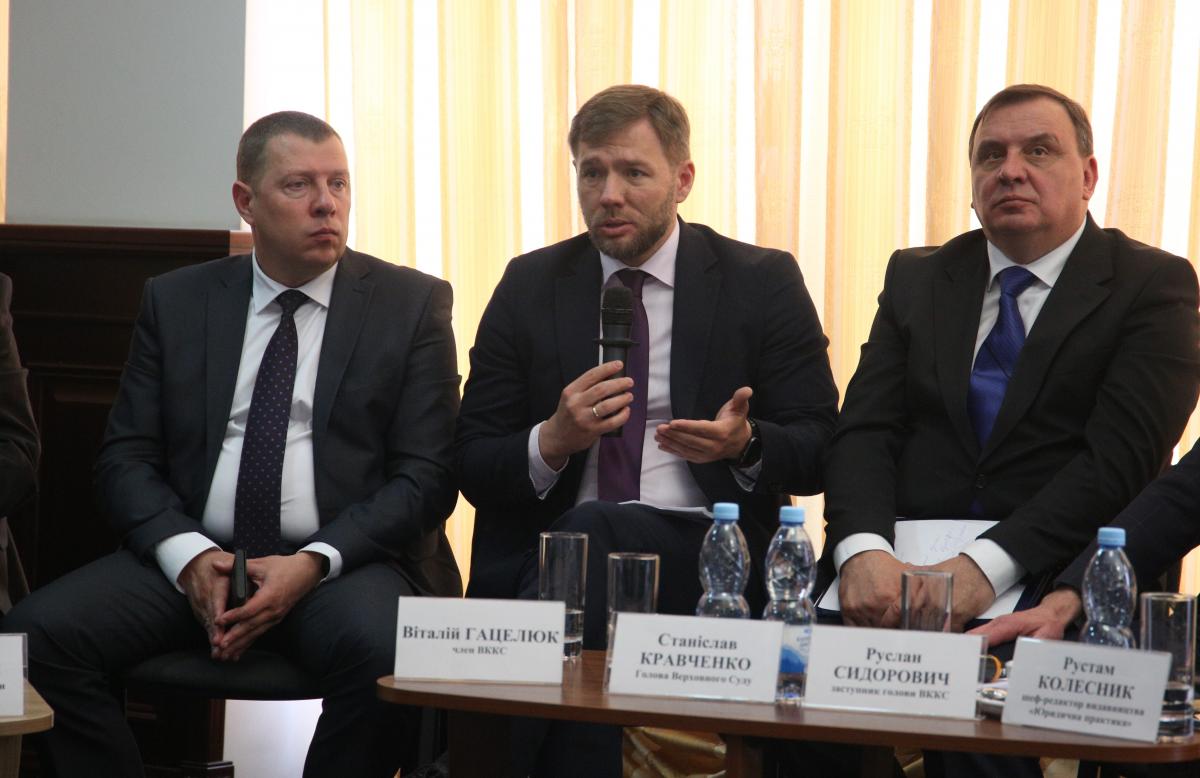
On April 26, 2024, the High Qualification Commission of Judges of Ukraine hosted a roundtable discussion “Justice of the Future: Selection and Appointment of Judges” with the participation of the Commission’s leadership and members. Representatives of state institutions, judicial governance and self-government bodies, as well as judges, lawyers and other legal experts spoke at the event.
Opening the event, the Deputy Chairman of the Commission, Ruslan Sydorovych, emphasized the importance of the topics to be discussed and thanked everyone who joined the roundtable.
The discussion centered, in particular, on the following issues:
- current staffing situation in the courts of Ukraine: challenges to the administration of justice and options for quickly filling judicial vacancies;
- from recommendation to appointment: what precedes the signing of the Presidential Decree on the appointment of judges;
- declarations and integrity: limits and evaluation criteria, experience of appealing;
- disadvantages in the existing mechanisms of training, selection and appointment of judges and ways to improve them;
- competition procedures 2023–2024: HQCJ’s developments;
- “pain points” in the qualification evaluation of judges;
- an entirely new concept of truly judicial reform in Ukraine.
The Secretary of the First Chamber of the Commission, Ruslan Melnyk, focused on the integrity of judges in his speech. He noted that integrity is a legal category that is used as an instrument for the Commission. The criteria for defining and filling this concept are clear to HQCJ members. They should be guided by the Bangalore Principles and the Law of Ukraine “On the Judiciary and the Status of Judges”. As part of the evaluation procedures, the Commission, together with the Public Integrity Council, taking into account joint developments and agreements, evaluates the suitability or non-suitability of a judge to the integrity criteria, among others. Ruslan Melnyk also reminded the audience of the procedures for integrity evaluation.
Commission member Andrii Pasichnyk also emphasized the importance of cooperation with the Public Integrity Council. He noted that in almost a year of the HQCJ’s work, due to the circumstances that have arisen, 90 percent of the Commission’s members are engaged in evaluating the integrity and professional ethics of judges and candidates for the position of judge. Andrii Pasichnyk also noted that the HQCJ and the PIC are members of a working group established on the basis of the HCJ, whose main goal is to develop common indicators for evaluating integrity and professional ethics for judges and judicial candidates. This group also includes professional experts and representatives of donor organizations. Currently, the final stage of work on the draft document is underway, and it will be made public in the near future.
Commission member Nadiia Kobetska highlighted that the amendments to the Law of Ukraine “On the Judiciary and the Status of Judges” in December 2023, provided more systematic and clear delineation of the three key procedures for access to judicial positions, namely selection, competition and appointment. Most of the changes were made to the selection procedure, in particular to the qualification exam, where the legislator introduced novelties by adding cognitive skills testing and testing on the history of Ukrainian statehood. The types and content of specialized tests were also changed and detailed, providing that a candidate must pass a test of general knowledge in the field of law, as well as a test and a practical task in each specialization.
In his speech, Commission member Roman Sabodash emphasized the importance of the HQCJ’s introduction of electronic submission of documents for participation in the competition to the appellate courts of Ukraine. The Commission is also launching an electronic candidate dossier on May 01, 2024. It is planned that in the future, communication between the candidate and the Commission will take place through the electronic office of the judicial career. Mr. Sabodash also said that for future competitions, the Commission has already been provided with 13,000 tests instead of 1,000, as it was before. The HQCJ hopes that the tests developed by the National School of Judges and finalized, in particular, by the Commission members, will be of high quality and that each candidate will appreciate it. Another novelty is that interviews with the candidates will be conducted by the Commission’s chambers, which was not the case before.
Commission member Vitalii Gatseliuk spoke about the qualification evaluation of judges. In his opinion, “...the process of qualification evaluation itself is a ‘pain point’, but it is not only a place where it hurts, but also signals and symbolizes that there is room for improvement in a certain area.” Mr. Gatseliuk reminded that on November 13, 2023, the Commission resumed the qualification evaluation of judges for their suitability for their positions. As of April 25, 2024, the qualification evaluation for suitability for the position has been completed in relation to 103 judges, of whom 82 are suitable for the position and 21 are not. In addition, the High Council of Justice submitted a motion for dismissal of 2 judges due to refusal to pass the qualification evaluation. The Commission has not completed the evaluation of 220 judges appointed to the position of judge for a five-year term. Therefore, the main “pain point” in the process of evaluation the suitability for the position is time, as the Commission has many other procedures that also need to be carried out.
The roundtable was organized by the Yurydychna Praktyka Publishing House with the support of the High Qualification Commission of Judges of Ukraine, the Supreme Court and the High Council of Justice.
